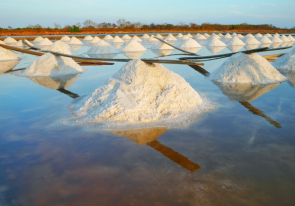Asaki asks govert to impose 200 percent anti-dumping duty on Chinese ceramic imports
The Indonesian Ceramic Industry Association (Asaki) asks the government to impose an anti-dumping duty (BMAD) of up to 200 percent on ceramic imports from China, citing unfair trade practices.
"We are not against or prohibiting ceramic imports from China, but we are opposing unfair trade practices, specifically dumping and predatory pricing," Asaki Chairman, Edy Suyanto, said in a statement as quoted Katadata.co.id on Thursday, July 4, 2024.
Evidence for these practices was disclosed in a recent investigation report by the Indonesian Anti-Dumping Committee (KADI). According to the report received by Asaki, Chinese ceramic products have been dumping at rates between 100.12 percent and 199.88 percent of their normal prices.
In other words, the import prices of Chinese ceramics are up to half of their actual value. This unfair practice has significantly impacted the domestic ceramic industry, leading to reduced production capacity and profitability.
Asaki reported that the ceramic industry's utilization rate in the first half of this year was only 63 percent, down from 69 percent in the same period in 2023.
KADI's report also noted that Chinese ceramic dumping has affected markets in the United States, Mexico, and India, prompting these countries to impose anti-dumping duties ranging from 74.5 percent to 451.6 percent.
Therefore, Edy is pushing for the Indonesian government to apply an anti-dumping duty on Chinese ceramic imports close to 200 percent. Specifically, he suggests duties of 100.12 percent to 155 percent for cooperative stakeholders and 199 percent for non-cooperative ones.
This anti-dumping regulation must be issued promptly. Edy warns that unscrupulous importers may exploit the time gap between KADI's findings and the implementation of BMAD to import large quantities of Chinese ceramics.
The BMAD will enable domestic ceramic manufacturers to compete fairly with imported products. Consequently, this will accelerate new investments in the ceramic industry.
"Several major importers have reported to Asaki their intention to support domestic ceramic factories in locations such as Subang, Batang, and Kendal," Edy said.
He highlighted that Indonesia is the world's fifth-largest ceramic producer, with an installed capacity of around 625 million square meters. The industry employs over 150,000 workers and has a local content level of over 80 percent.
The implementation of BMAD is expected to help the national ceramic industry recover, potentially reaching a utilization rate of 75 percent as it did in 2022 or even surpassing 90 percent as seen in 2012-2024.
In recent years, the domestic ceramic industry has been struggling due to an influx of Chinese products. According to Trend Economy data, the value of ceramic imports from China never exceeded US$300 million (Rp4.9 billion) per year from 2011 to 2016.
However, since 2017, imports have consistently surpassed this figure, peaking at US$502.47 million in 2021 and US$695.44 million in 2022. As a result, Indonesia's ceramic trade balance with China has turned negative.
Edy argues that this trade deficit should not exist because the domestic market can supply all types of ceramics. Additionally, 80 percent of local ceramic products have obtained domestic content certification (TKDN).
Tag
Already have an account? Sign In
-
Start reading
Freemium
-
Monthly Subscription
30% OFF$26.03
$37.19/MonthCancel anytime
This offer is open to all new subscribers!
Subscribe now -
Yearly Subscription
33% OFF$228.13
$340.5/YearCancel anytime
This offer is open to all new subscribers!
Subscribe now






